A tracheal shave, also known as chondrolaryngoplasty, is a gender-affirming facial surgery that reduces the prominence of the Adam’s apple. This procedure is especially popular among transgender women and non-binary individuals seeking a more feminine neck contour, but it can also be performed on cisgender patients who feel self-conscious about a visible Adam’s apple.
What Is a Tracheal Shave?
The tracheal shave is a cosmetic surgical procedure that involves carefully reducing the size of the thyroid cartilage at the front of the neck (what is commonly referred to as the Adam's Apple). By contouring this cartilage, the surgeon creates a smoother, more feminine neckline without compromising the function of the vocal cords.
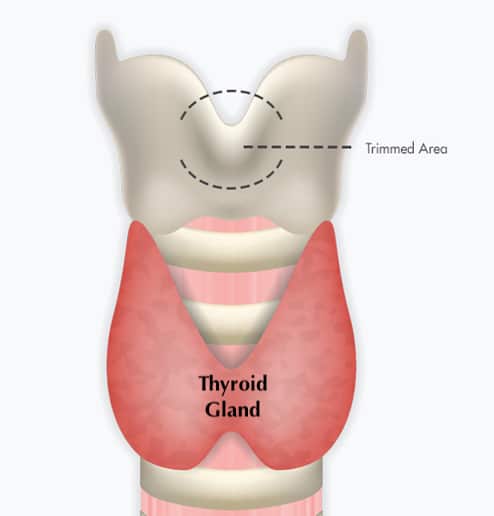
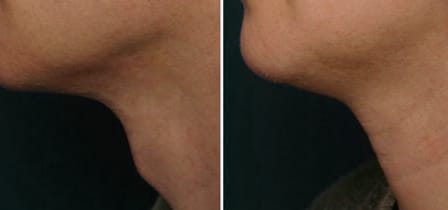
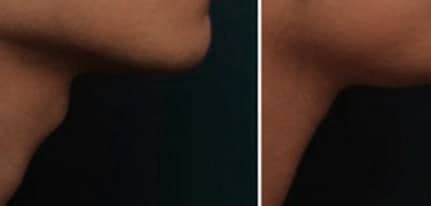
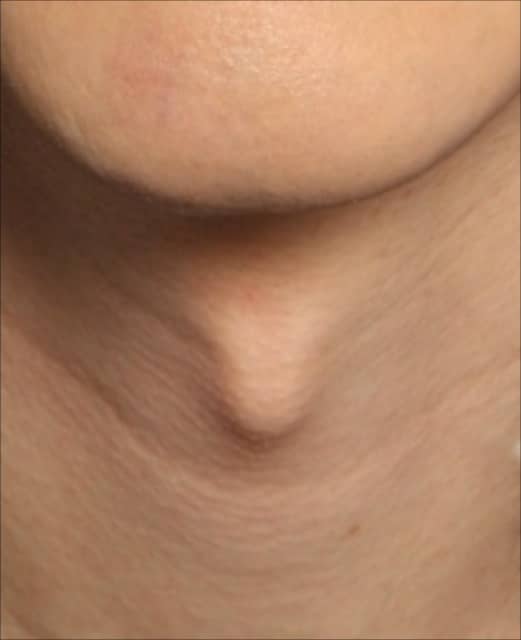
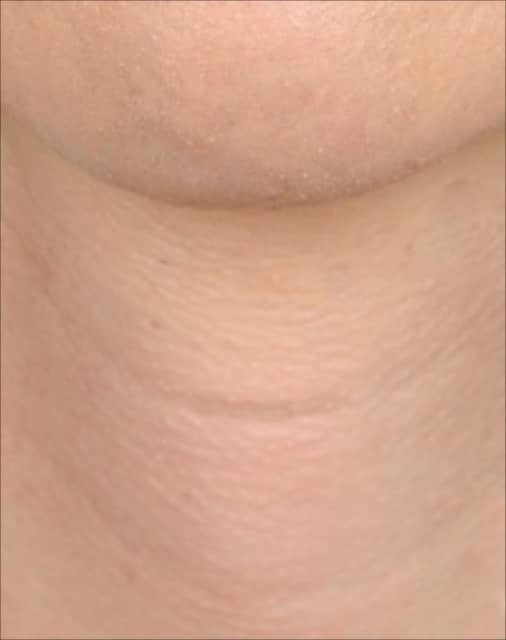
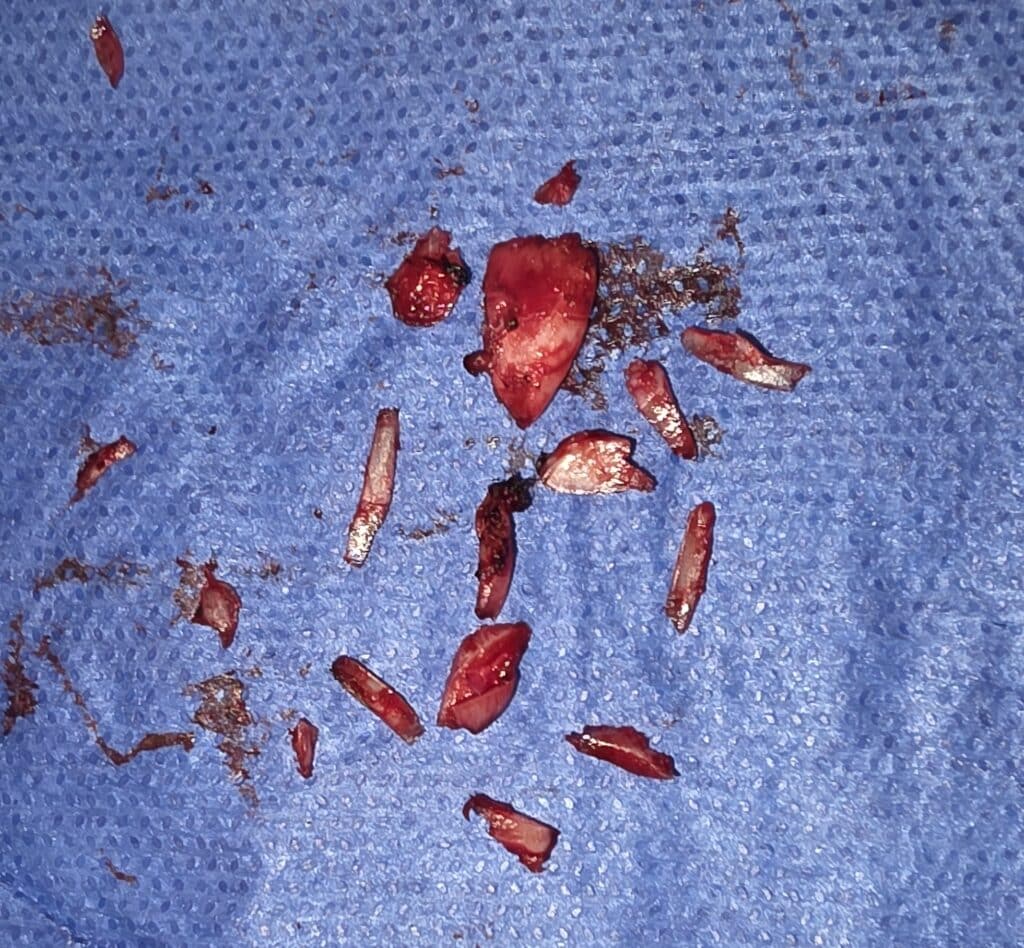
Ideal Candidates
Patients who may benefit from a tracheal shave include:
- Trans women who want a less masculine neck profile.
- Non-binary individuals who want a less masculine neck profile.
- Cisgender men or women bothered by a prominent Adam’s apple.
Ideal candidates should be in good overall health, have realistic expectations, and consult with a board-certified plastic or facial surgeon experienced in this very specific Surgical Technique. Dr. Medalie meets these criteria.
During the procedure, a small incision is typically made under the chin or in a natural skin crease on the neck to keep scarring minimal. Dr. Medalie then carefully reduces the thyroid cartilage with a scalpel and rongeur while making sure that the vocal cords are not affected. Surgery usually takes 1–2 hours and is performed under local anesthesia with mild sedation.
Recovery Timeline
- First few days: Mild swelling, soreness, and tightness in the throat are common. Patients can also have a horse voice for a week or two.
- 1–2 weeks: Most patients return to work and social activities.
- 4–6 weeks: Full healing with reduced swelling; incision lines fade over time.Final scar appearance can take up to 9 months.
Patients are often advised to avoid heavy lifting, strenuous activity, or excessive talking immediately after surgery to protect the vocal area.
Risks and Considerations
While tracheal shave is generally safe, potential risks include:
- Temporary or permanent hoarseness.
- Scarring at the incision site.
- Infection or delayed healing.This has never happened in my practice.
- Rarely, changes in vocal pitch if cartilage reduction is too aggressive.
Choosing a qualified surgeon such as Dr. Medalie with expertise in voice-preservation techniques is critical to minimizing these risks.
Benefits of Tracheal Shave Surgery
- Creates a smoother, more feminine neck contour.
- Reduces gender dysphoria for transgender women.
- Improves overall confidence in social and professional settings.
- Can be combined with other facial feminization procedures for a comprehensive result.
Long-Term Results
Results of a tracheal shave are permanent. Once the thyroid cartilage is reduced, it does not grow back. Scars are usually small and fade over time, leaving patients with a natural-looking, feminine neckline.
Tracheal Shave FAQ
No – Tracheal Shave can be performed with mild oral sedation and local anesthesia in approximately 1.5 hours.
I typically give my patients antibiotics for three days around the surgery. I have NEVER had a post-operative infection. Please be aware that smoking is the number one reason for post-operative infections and healing problems. I thus require my patients to STOP SMOKING at least 6 weeks to 3 months prior to any tracheal shave procedure.
The trachea are not very vascular and do not bleed easily. During the surgery, local anesthetic is injected into the tissue-this blocks the sensation and also constricts blood vessels. As a result, there is very little bleeding during the surgery. I have NEVER had a patient have a bleeding complication post-op.
While it may seem that this is a very bad area to have surgery on, in fact, the neck and tracheal cartilage are very resilient and heal speedily. Pain that may require narcotic pain medicine typically lasts only a few days. After that, ibuprofen (Motrin and Advil) is sufficient. I recommend that patients take a week off from work, but if you have a desk job, you can go back sooner. The post-op care is fairly easy and involves cleansing several times per day and gentle massage after the steri-strips fall off. Most of the swelling has disappeared by two weeks. Final results can take several months and the final appearance of the scar may not be visible for 9 months.
I recommend that patients refrain heavy exercise for 2 weeks after surgery. This does not mean that other types of normal activity cannot take place.
Some of the deep sutures under the skin can take up to four months to completely dissolve. For this reason, some patients may report sensitivity issues such as itching for up to four months post-op. After that, sensation issues are very uncommon and the scar gradually whitens and fades.
Simple tracheal shave under local anesthesia and mild sedation costs around $4000 at Dr. Medalie’s office.
I frequently perform tracheal shave surgery on patients who live out of town and are unable to easily to see me in consultation prior to the procedure. I have several requirements for these patients: I must see pictures of them prior to scheduling surgery. They need to contact my office and have my patient care manager e-mail them a history and physical form to be filled out and sent back. Typically the patient will come into town 1 day prior to the procedure, and I will see them the day of surgery. A phone consultation will be performed about 3 weeks prior to surgery. I will then perform the operation and patients can usually return home the day after surgery. Your post-op visit will be a virtual visit with my nurse, Michelle, about 10-14 days after surgery. I will then follow the progress of the patient via e-mailed pictures. My patient care manager has information about hotels in the area as well as financing. You may contact her at valerie@clevelandplasticsurgery.com.
Where can I get more information?
Please call Dr. Medalie at 216-393-9924. You can also e-mail his patient care manager, Valerie, at valerie@clevelandplasticsurgery.com.
